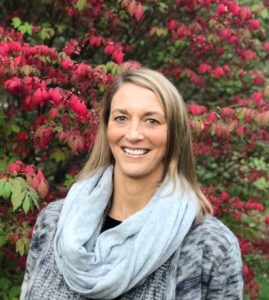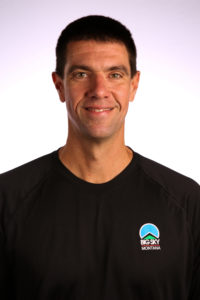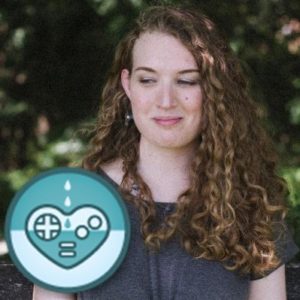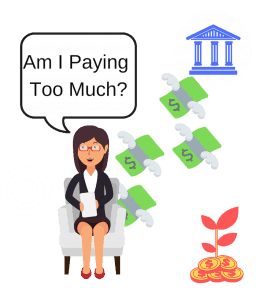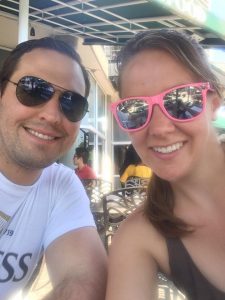Denis O’Brien [0:37]
Welcome to Episode 189, pros and cons of the Fire. Hey money clan, a very warm welcome to the chain of wealth podcast. I’m your host, Denis O’Brien.
Katie Welsh [0:50]
And I’m Katie Welsh.
Denis O’Brien [0:51]
So Katie Fire.
Katie Welsh [0:53]
So what is fire? Because we’re not talking about the hot stuff that you make a s’more over.
Denis O’Brien [0:59]
No, sadly not. All right. So fire financial independence, retire early, the massive movement that’s currently doing the rounds. Well, I wouldn’t say even currently, but it’s definitely a big trend at the moment within the personal finance space.
Katie Welsh [1:14]
I do want to say though, it is only within the personal finance space, because when you talk to other people, not into personal finance, they have no idea what you’re talking about.
Denis O’Brien [1:25]
Yeah, that’s very true.
Katie Welsh [2:24]
So this is a very niche kind of topic, or only people who are listening to personal finance podcasts or blogs, or following that kind of world at all. Those are the only people who are talking about fire in this sense.
Denis O’Brien [1:40]
Yeah. And today, we’re going to do quite a bit of a dive into it and talk about some of the pros and cons of whether it may or may not be right for you. Because let’s be honest, like, it can be right for you. And it can be wrong for you. It just really depends on what you’re trying to get out of life.
Katie Welsh [2:24]
Yeah, for sure.
Denis O’Brien [1:56]
Cool. Well, before we dive into that, if you guys haven’t already, we’re busy onboarding people for debt destruction course, we’re actually giving away our course to five lucky people you may have heard us mention on previous podcasts, and it is coming out. So definitely be on the lookout. If you want to sign up, you can sign up, it’s chainofwealth.com/debtcourse, you can sign up and get access to our debt destruction course. All right, Kate, are you ready to dive right in?
Katie Welsh [2:23]
Yeah.
Denis O’Brien [2:24]
All right, let’s do it.
Unknown Speaker [2:26]
welcome to chain of wealth. here’s your host, Denis inspiring you to begin your journey of financial freedom.
Denis O’Brien [2:39]
All right, Kate. So fire. So let’s firstly chat about some of the pros of fire. And I mean, there are a ton, so let’s discuss them.
Katie Welsh [2:48]
Okay. So when I think of fire, I think obviously, the retire early part because the FI, in fire, stands for financially independent, meaning that you are not really relying on your paycheck from work.
Denis O’Brien [3:4]
Right. And I think that that’s an important distinction.
Katie Welsh [3:7]
And that is a big goal in itself to get there. And I think that that is the first stepping stone. So if you do want to retire early, which is the R E in fire, then you need to become F I or Fi, or financially independent, early on as early as you can. So you can retire as early as you can.
Denis O’Brien [3:30]
Yeah, and what is financial independence means so essentially just not rely on the paycheck,
Katie Welsh [3:36]
Right.
Denis O’Brien [3:36]
So the way you achieve financial independence, then would be you have assets that are income producing and you’re able to, you aren’t restricted in the sense that, you have to wait for your paycheck, come in, because your assets are making you money effectively while you’re sleeping.
Katie Welsh [3:52]
Well, even before that, Den when I think of it, the first big step is paying off all your debt. So whether that’s a student loan, credit card payment, a mortgage payment, if you’re going to stay planted, those payments probably should be paid off first. And then like you said, any kind of investment you have, you are making money off of your assets.
Denis O’Brien [4:18]
Yeah, so I think like each sort of stages you reach you unlock a new sense of freedom. So as an example, paying off your debts, you now have additional money to start investing, and you don’t have creditors knocking on your door and make you feel like you’re being chased all the time.
Katie Welsh [4:34]
Right. So there’s a lot of pros when it comes to retiring early. And the first one is, I think, pretty obvious, you don’t have to go and grind at your nine to five that you’re miserable at anymore. It frees up your time that you’re able to do things that you’re more passionate about whether that is actually retiring, or volunteering or, you know, even just picking up a like a hobby type job, you have the freedom and the flexibility to be able to do that.
Denis O’Brien [5:9]
So effectively, you no longer have to go to work,
Katie Welsh [5:13]
Right
Denis O’Brien [5:13]
You’re there because you want to be there not because you’re dependent on that income.
Katie Welsh [5:18]
Correct.
Denis O’Brien [5:18]
And having that sense of freedom Kate, I think is absolutely huge. And, you know, I think it works wonders for your self esteem and for your, you know, like just your relationships with people and how you hold yourself and your sense of self worth, you know, knowing that you’re doing something because you want to do it not because you’re being pushed back into a corner, and you don’t really have an option.
Katie Welsh [5:39]
Yeah, well, and it really can broaden your and I don’t want to be super corny, but it can broaden your horizons because on the podcast, we’ve talked to a lot of people who have retired early, and they take that time to do what they want to do. They travel, a lot of people move to foreign countries. A lot of people travel around the United States full time imagine traveling around all the time, like oh, today, I don’t feel like being in Texas. So I think I’m going to drive to New Mexico and it’s fine and nobody is going to get on my back about it. It’s really eye opening. And I before talking to see that. Things to do when they retire, Michelle Schroeder-Gardner from Making Sense of Cents, it never occurred to me that people live that way.
Denis O’Brien [6:31]
Yeah, and, like, I think having that sense of freedom allows people to, you know, like, literally, like you said, like, do whatever they want to do and travel as much as they want. And if they want to take a, you know, a two week sailing trip, they can do that. And they don’t have someone literally like watching every move waiting for them to get back to work and do something. And, you know, ultimately, they are the masters of their own destiny. Now, Kate, obviously, with great power comes great responsibility as I quote spiderman. But let’s talk about the sacrifice that’s involved for for fire. You know, like, typically, you can achieve fire pretty young. And and when I said pretty young, I would say retiring at about between 40 to 50.
Katie Welsh [7:19]
Okay,
Denis O’Brien [7:19]
And that’s super early, you know, if you consider most people only retire, when they’re in their late 60s, early 70s, sometimes even later than that, you know, retiring early 40s, that’s giving you an extra, like 20 30 years of retirement really, to, you know, just be retired and do whatever you want to do. So let’s talk about the sort of sacrifice that goes into that.
Katie Welsh [7:43]
I think that’s a bit of a loaded question, because it’s going to come differently for everybody. So if you are sitting there with $30,000 of student loan debt, and you haven’t been contributing to your IRA, or your 401k, or, you know, any other kind of debt that you have, well, first, you have to battle over that, first. That could look much different from somebody who, let’s say, went to university and had scholarships and their parents helps them and they came out with no student loan debt, and they have been vigilantly saving their money. That person is obviously closer to being financially independent. Does that mean that the person who has the student loan debt and who hasn’t been contributing as much not be able to attain that goal? Absolutely not. It just means that the person who is paying back the debt and having to catch up on savings, they are going to obviously have to cut back a little bit more extremely than the counterpart. With budgeting and side hustling and really being determined to achieve that lifestyle. I don’t think it is unattainable at all.
Denis O’Brien [8:55]
Yeah, I think that’s 100% attainable. And, you know, like, I think ultimately, once you decide that this is a route you want to take, you need to realize that this is a very long road, and you’re going to have to sacrifice a lot. And typically the normal strategy that people take and fire is they become super minimalist. And very frugal, and not said, that’s a bad thing. I’ll say that you being cheap, or anything else, but it’s sacrificing now to have enjoyment later on. And you know, Kate, being a personal finance podcast, we’re all about building that longer term wealth and planting the seed now. So you have a tree later on is that when you do need shade, it’s there. You know, like planting those seeds early on is critically important. And when it comes to fire, it’s no different, you know, like, the more work you put in now, the better you’re going to be in a couple years time. And the more money can work for you. And we just did an episode a couple of days ago about compound interest and the power that it actually has and how quickly you can double, triple quadruple your money. And it’s critically important, you know, and with fire, it’s sort of trying to get as much money into those accounts as possible. And really let that compounding effect take place and really start working for you.
Katie Welsh [10:15]
For sure. So can I take it now and spin it into not everything is as perfect as what it seems to be on the surface.
Denis O’Brien [10:26]
I would love that. But before we do that, let’s take a little bit break and say a quick thanks to our sponsor,
Katie Welsh [10:31]
Okay.
Denis O’Brien [10:33]
If you have a financial plan, you’re three times more likely to be satisfied with your personal finances, and two times more likely to live comfortably. That’s where savvi financial comes in. savvi financial was built for the team of mathematicians, engineers and data scientists from MIT. And they created a platform that actually helps you take action wants a tailor made plan based on your own financial goals. Today, you can get access to this platform for absolutely free on the base subscription, you can head on over to chainofwealth.com/savvi. That’s chainofwealth.com/savvi. Kate and I have both started using the platform and can personally vouch for it, it really is great at helping you set a goal and really start making the steps to achieve it. This goal is based on your own financial position. So it’s definitely a really great tool. You can claim their offer, it’s chainofwealth.com/savvi.
Katie Welsh [11:35]
Okay, Den. So before the break, we talked about all the great things about fire, and how it’s wonderful and you get to travel and you get to drink coffee out of a mug and not a to-go cup on a Tuesday
Denis O’Brien [11:49]
And you get to have waffles on Wednesday.
Katie Welsh [11:53]
But what could be the downside?
Denis O’Brien [11:57]
Well, the downside is that typically, if you’re doing fire true fire, you’re no longer going to be in the workforce, which means you’re removing yourself. And as a result, you’re not going to be engaged, and maybe not as mentally stimulated. You know, like just reaching a point where you no longer have to work, are you really still going to feel like there’s a sense of value, are you what are you going to do to keep yourself busy when all of your friends still have another 20 or 30 years left of saving, you are significantly further along on the journey than they are. And Kate like, I think there’s also the sense of loneliness that can come from it as well, if you do retire early, and you know, like not really knowing what to do. And we always look at influencers as a good example. You know, they, they seem to be leading these amazing lives where they’re Insta famous and taking these great photos. And really where the reality is, is that they’re actually very lonely people and they’re actually miserable. And not to say that fire will make you miserable. I think it depends on the personality type that you have, and only you can really answer that question. But it definitely is a big question as to what will you do when you are free? You know, once you’ve achieved that sense of, I don’t need to work anymore. Are you going to just quit your job? Are you going to have something else to keep you busy? Like what is your day going to look like?
Katie Welsh [13:19]
That is a very true point. And another point is, this was a big topic a couple of months ago. And I wanted, I listened to another podcast, I listened to the Paula Pan afford anything podcast. And she interviewed Susie Orman. And if you don’t know who Susie Orman is, if you’ve never watched her TV show when you were younger, and she brutally told everybody that basically they could never afford anything. She is a financial guru, much like Dave Ramsey. Anyway, so Paula Pan, interviewed Susie about the fire movement. And Susie completely does not support it out all for the fact and this is the big takeaway that I took from it. And if you want to check it out, it was a really great interview. But the fact is Susie said that, typically when you are retiring earlier, you’re in your 30s or 40s. Those are your big money making year. That’s when you are no longer the new kid on the block in your career. And you have been able to accumulate a couple of raises and you know what you’re doing, and now is the time that you can really stash some money away, hopefully your bills are under control, you’ve probably have settled down and had a family. And now if you’re not contributing to your retirement funds anymore, you’re basically leaving money wasted on the table.
Denis O’Brien [14:58]
Yeah, and that’s totally true as well, you know, like, going back to that compounding episode that we spoke about a bit earlier. You know, the more money you can sort of contribute as early on as you can the better off you are. So If you’ve now retired, you’ve removed yourself from that income contributing phase and you starting to withdraw, it’s obviously going to have a big negative impact. And the question is, Kate, what if you run out of money? Well, not know what, what if you haven’t calculated your math correctly?
Katie Welsh [15:24]
That would be quite the dilemma, wouldn’t it? Yeah, be a real snafu
Denis O’Brien [15:58]
It would. And the thing is, as well as that people have different stages to fire, you can decide you want to be you know, like, living off a annualized income of like $35,000. Or you may say, Oh, no, I want to earn $110,000 when I’m retired, you know, and based on what that number is that you come up with what lifestyle you want to maintain, you need to figure out how much money you need? And what withdrawal rate you’re going to use to figure out how are you going to maintain your money and not run out of cash?
Katie Welsh [15:58]
Well, and another good point she had was when you get older, unfortunately, you start to wear out a little bit, you don’t live forever, and your medical bills will most likely increase as you get older hope. And that’s you know, even if you are a healthy 60 year old heaven forbid, you get sick you or or you fall or, or even a bad car accident or something like that could really cripple you, and those kind of things. A lot of times people when they are retiring early at 40, they’re not thinking
Denis O’Brien [17:12]
They are not thinking about those big expenses,
Katie Welsh [16:45]
Well, they’re not thinking well, geez, I could easily live especially if I’m not really stressed out. I could easily live till I’m 90, And people are living till they’re 90 years old all the time now. So that is, what 50 more years that you have to be able to live. And that is a long time.
Denis O’Brien [17:6]
Yeah, that’s a long time to make your nest egg last.
Katie Welsh [17:9]
So I have a question for you.
Denis O’Brien [17:11]
Yeah?
Katie Welsh [17:12]
Now that we have talked about fire, and the pros and the cons that we’ve never actually talked about this, me and you?
Denis O’Brien [17:19]
Yeah,
Katie Welsh [17:19]
I thought it’d be kind of fun to open up the table. So are you fire?
Denis O’Brien [17:24]
Kate, I don’t think that I personally would consider myself fire. However I value financial independence, a huge amount.
Katie Welsh [17:32]
Tell me more.
Denis O’Brien [17:33]
I like having the ability to make decisions and be informed and you know, decide what position I want to be in. And, you know, I think that achieving a sense of financial independence where you have that ability is critically important. I don’t think I’ve got the personality type that suits the retire early. I feel like I would always be doing something I’m not sure what that something would be. You know, would it be worth employer A or employer B or doing my own thing? I don’t know. But realistically, I, I think that I am the sort of person I would always like to be doing something.
Katie Welsh [18:9]
Fair enough.
Denis O’Brien [18:9]
How about you?
Katie Welsh [18:10]
I’m not really surprised by your answer. I guess I I really don’t want to sound cliche, but I completely match you. I really enjoy the idea of not living paycheck to paycheck, and having the money for an emergency and being able to max out my 401k and all those great things, however, and don’t get me wrong. When I’m really tired. And I love my naps, I could 100% get on board with the retire early part, and travel and do all kinds of fun things. And I think it would be good for like, six months, but I would get bored. Yeah, I like to be busy. I like having things going on. And I know sometimes I come home from work, and I whine and I’m tired. And I have you know, side hustle, one, two and three going on. But I actually really enjoy doing that. So I think retiring early would leave me quite bored.
Denis O’Brien [19:11]
Yeah, I have to agree. And like we said at the beginning of this episode, you know, you have to figure that out for yourself. What does it look like for you? When do you want to reach that point that you can retire? Will you retire? There’s a lot of questions you got to ask yourself. And I think there’s there are a lot of pros and cons that go with fire. I think regardless of whether you’re going to be pursuing it or not, I think the most important thing you can do is achieve that financial independence state where you’ve paid off your debt. No one’s going to come knocking and you have the ability to be informed to make decisions and be in a position of power.
Katie Welsh [19:46]
Yeah, now that I’m thinking about it, I don’t think that ultimately I’ll ever retire because I would get bored. I like making money. I like getting a paycheck.
Denis O’Brien [19:56]
Definitely agree. So we’d love to hear from you guys. Are you pursuing fire? Hit us up its @chainofwealth on Twitter. You can also email us it’s [email protected] we’ll catch you next time money clan




